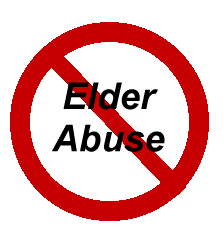 Elder abuse is a reality for 1 in 10 American seniors. Researchers estimate that people only report 1 in 14 cases. Family, friends, and caregivers are all possible perpetrators of elderly abuse towards seniors living at home. While not a new occurrence, researchers expect elder abuse reporting to increase along with an increase in older populations. Seniors will naturally want to protect themselves, and family members can learn about signs to look for and report if family or paid caregivers are engaging in it.
Elder abuse is a reality for 1 in 10 American seniors. Researchers estimate that people only report 1 in 14 cases. Family, friends, and caregivers are all possible perpetrators of elderly abuse towards seniors living at home. While not a new occurrence, researchers expect elder abuse reporting to increase along with an increase in older populations. Seniors will naturally want to protect themselves, and family members can learn about signs to look for and report if family or paid caregivers are engaging in it.
Types of abuse
Exploitation of seniors for their money can be the most insidious type of abuse, because due to the senior receiving care, attention and affection, it looks consensual. Financial abuse accounted for approximately 30 percent of elderly abuse in a 1996 study. It is difficult to pinpoint when family members are the perpetrators, due to their complex dynamics with the senior and other relatives.
Concerned relatives can keep in mind that financial abuse involves withholding and controlling resources, such as taking a senior’s disability or social security checks. Perpetrators may get seniors to sign over property or financial control under duress or altered mental states. Sometimes financial abuse comes with other forms of abuse, such as neglect, physical and verbal or emotional abuse. Disabled seniors and seniors with dementia or seniors who are otherwise dependent are also at risk for the second most common type of abuse: physical. Contrary to popular belief, however, it is the more independent seniors with financial and physical independence who experience pure financial exploitation. Abusers take advantage of continuing this appearance.
The solution? A relative asking to take a look at expenses and documents would be more out of concern than nosiness. Alternately, you can get an accountant or a lawyer. Seniors get a second or third opinion and that’s always a good thing.
Elder abuse laws
Interventions to reduce senior abuse by caregivers involve psychological screening of caregivers and state laws regarding the necessity of investigating and reporting abuse. It is state law rather than federal law that addresses elder abuse. The elder abuse statutes in forty-eight states and the District of Colombia mention financial abuse but differ in its definition and accountability. They also differ as to whether there’s protection specifically for seniors or all incapacitated or vulnerable adults in general, whether financial abuse must consider the senior’s decision-making ability and what age constitutes seniority. Seniors and their loved ones can report abuse via a local Adult Protective Services office.
Prevention
- practicing good healthcare
- creating a living will or setting up a power of attorney
- periodically reviewing your own will
- getting involved in community activities and social support groups
- setting up direct deposit for checks
- taking care of your own mail
- not giving sensitive personal information by phone
Seniors can empower themselves by maintaining personal control over their finances and health as much as physically possible. Studies on caregivers show that they don’t prioritize their own health and so benefit from addressing substance abuse and mental health problems. They also benefit from respite care as a “short break” to reduce interpersonal stress.